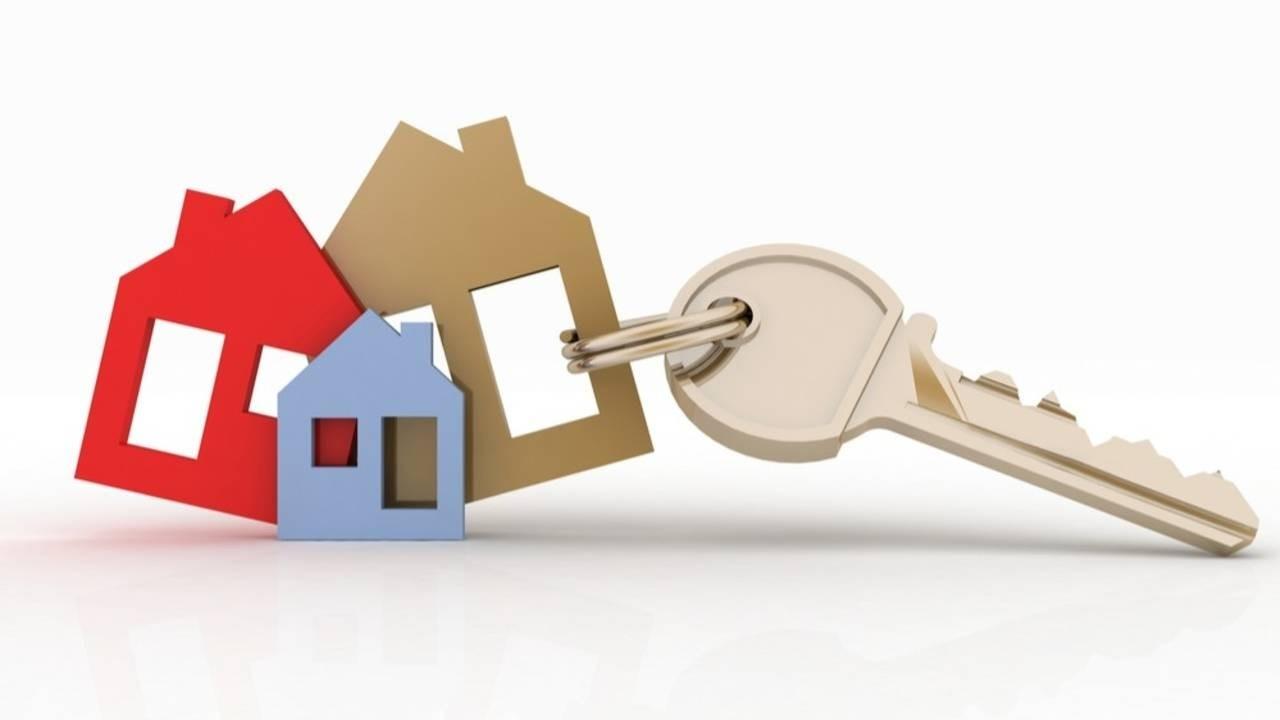Honey, I shrunk the deposit!

When it comes to investing in property the big challenge, especially for newbies, is getting enough money in the bank to pay that all important 25% deposit. Depending on where you are buying property that can run to many thousands of pounds.
So what if you could trim that 25% down to nearer 10%?
Here’s the strategy:
Step 1: Complete the purchase – using bridging finance rather than a BTL mortgage. Some properties won’t be mortgageable anyway, but that doesn’t mean they’re a bad buy.
Step 2: A quick exchange of contracts. This can be done as soon as your loan is approved and as soon as your solicitor is able to arrange it. We should be talking days here, rather than weeks and certainly not months.
Step 3: Quick completion. Again, that will be as fast as your solicitor is able to do it. Often this will be in 28 days or even quicker.
Step 4: Execute your exit strategy from the day of purchase. This means if you’re planning to sell, put it on the market. If you’re planning to...
Buying your first property

THE QUESTION
I’m looking to buy my first house and I have £40K in cash ready to go. Do I:
- Buy it outright. Do the full refurbishment (I’m looking at 12 weeks). It will be worth £80k once complete and rent for £500pcm. so get a mortgage at £75K LTV, once it’s ready to let.
- Apply for a mortgage at £75 LTV and wait at least six months to get my equity out.
Or is there a better way?
THE ANSWER
The argument for buying with cash
- You can buy much faster than getting bogged down in a mortgage application process
- If you can buy faster, you should be able to negotiate to buy cheaper - to a degree
- During the refurb period you have no monthly payments to make and incur no interest
- Once refurbed, value uplifted and tenanted you can apply for a mortgage. Wait six months if you want access to preferential interest rates; don’t wait if you don’t
At any point in between if you manage to find your next deal and certainly once you have refurbed and added value, you can bridge agains...
Can you get 100% bridging?

THE QUESTION
Can you 100% fund with bridging an optioned project using planning gain as equity?
The project is a conversion of offices to residential, with planning for Change of Use.
The projected uplift in value is 35% upon consent. total circa £1m.
Although I have no actual direct experience, I do have a few very large client successes and similar smaller scale projects in my portfolio.
THE ANSWER
In terms of loan to purchase price, bridgers divide into broadly 3 camps
- Those that lend on the lower of the purchase price or value, exactly the same as mortgage lenders do
- Those that will recognise a value uplift, but put in a maximum loan to purchase percentage override i.e. the lower of 70% of value and 85/90% of purchase price. This would mean whatever value uplift you created they would still require a minimum of at least 10% of purchase price input from you
- Those that genuinely ignore the purchase price and lend on value
Of those, No. 3 is the rarest, but they do exist...
Buying an unmortgageable property

Some people will warn you that buying a property that you can’t get a mortgage on is madness. If you listen to them you could be missing out on some great opportunities that may be unmortgageable – but are still very profitable!
Traditional lenders have a long list of types of property they won’t touch. These include:
- Derelict properties or properties that are in severe disrepair
- Properties without a kitchen and bathroom
- Properties that have more than one kitchen
- Properties with structural defects, damp, mould, wet or dry rot, wall tie problems
- Properties with Japanese Knotweed
- Non-standard construction properties – like the Wimpey No-Fines homes built after WWII.
- Properties where there’s a boundary dispute
- A house to flats conversion that has been done without proper planning permission (or planning permission has been applied for after the fact)
- Properties under £50K in value
- Properties with fewer than 70 years remaining on the leasehold
- Any property with a defective ...
Cash buyer – with no cash!

Cash buyers get better deals. They can negotiate substantial discounts on the asking price for properties, sometimes even as much as 50% below market value if there’s a really motivated seller.
The need to get a mortgage slows things down and can take months, so the ability to get the deal done in under a month can be very attractive to a seller who wants to get money out and move on.
I’ve explained how bridging works in many of my blogs, but to really see how it operates here’s a fairly typical case study.
The investor: An experienced investor, but not with bridging finance. He had about £38K in actual cash available.
The property for sale: A former care home, originally a terrace of six houses, that had closed due to the owners being unable to afford to meet the Care Quality Commission standards. It had been on the market for some time – with no interest.
The asking price: £350,000
The plan: To apply for permission to convert it to an 18-unit HMO.
The cost of conversion...
No cash? No problem!

The problem with buying property as an investment is that you need to have enough money to put down as a deposit – and then it’s locked into your property for six months or more, until you can remortgage. The days of ‘no money down’ mortgages are gone; you need a deposit to get any mortgage these days, usually 25% of your purchase price.
At this rate you’ll be lucky to add two properties a year to your portfolio, unless you have a big nest egg.
The secret is not to lock your capital into a mortgage, but to use creative financial packages specially developed for property investors.
Do you fit the buy-to-let lender’s typical profile?
Don’t lenders love property investors, because they have plenty of assets so their mortgage is secure?
No!
Buy-to-let lenders like their clients to have a nice, secure full-time job earning a minimum of £25,000 a year and have their own cash for at least a 25% deposit. If you have too many properties it can make them nervous in case you leave your se...
Isn’t bridging finance an expensive option?

If you don’t have a big wad of cash sitting in your bank bridging finance gives you more flexibility and, with the right bridger, much better deals.
Is it more expensive than a buy-to-let mortgage? Yes, but it’s not more expensive than a joint venture where your finance partner will expect a big chunk of the profits or from using overdraft or bank loan facilities.
Also it allows you to buy properties that any mortgage lender would consider unmortgageable – even though there is considerable profit in them.
In terms of the monthly cost of finance it’s definitely higher than you would pay for a high street buy to let product but you can’t really compare the two.
The normal cost of bridging finance is typically 1% per month, but it can be cheaper, even down to 0.5%, depending on the property.
Usually you’ll agree a period for the bridging term. it’s a buy to sell where the investor is very confident of a quick sale, that term may be four months. For a property that the investor is...
How do I leverage my equity?

THE QUESTION
I have a mortgage-free rental property that I want to raise capital against for another BTL. I want to be able to find a BTL property and to quickly be able to raise capital against the existing property, so I am able to secure the new BTL once I find it.
To go through the whole process of finding the right property, applying to release the equity on the mortgage-free property for the deposit and then waiting for the mortgage to go through on the new BTL seems like a long-winded process. I could risk losing opportunities on properties that might want a quick sale. Is there is a simpler way of doing this without the increase in costs of releasing the equity early and sitting on it for a few months before I find the next property?
THE ANSWER
We have been doing exactly this for years! Bridging finance can be arranged in under 4 weeks, so you can delay incurring any cost until you find the property you want to buy, but then buy it fast, pretty much like a cash buyer wo...
Bridging myths

Bridging finance is one of those subjects where the majority of people – even property people – do that sharp intake of breath and shake their heads. It’s seen as expensive and ‘risky’ – akin to the kind of deal you might get into with one of those high-interest loan companies like Wonga.
It’s not. You just need a little understanding.
Here are some the myths that need blowing out of the water:
- A bridger will foreclose and take your property.
With a reputable bridging lender (and I only deal with these) repossession is their last option not their first option. They’ll work with any borrower who communicates openly with them. If you think you’re going to run over term most decent bridgers will work with you to find a solution to repay your loan. It will cost you more, but you don’t lose your investment altogether (although you will probably take the hit out of your profit).
Getting into difficulties with repayment of your bridging loan is usually the result of your due dil...
Power up your equity

When you launch your property career it’s rare to be cash-rich. However, most investors own their own home – and frequently have substantial equity in their property. So it’s obvious – remortgage your home, release a chunk of money and you’re off and running. Or is it?
If you’ve got an unencumbered or low-geared (less than 25% LTV) property, you’ve got collateral. But why incur mortgage payments and interest when you don’t need to?
Confused? This isn’t as complicated as it might sound.
So if you decided to release equity to provide you with deposits for a few buy-to-let properties, you’ll have to make the application, wait for it to come through and then you’ve got a chunk of money sitting in your bank account. It’s not earning anything there, but you’re already paying interest on the mortgage and your monthly income will have to cover the mortgage payments.
How many weeks or months will it be before you find suitable BTL properties to purchase? All that time you’re paying f...




